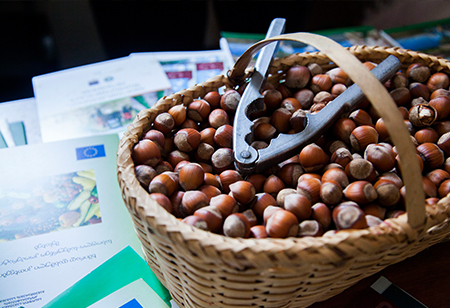EU helps Georgia develop its Non-Timber Forest Products sector

Leading specialists, scientists, delegates and representatives of local and foreign enterprises, exporter organisations, Governmental bodies and civil society are teaming up to develop a Non-Timber Forest Products sector in Georgia.
Georgian non-timber forest products have been recognised as one of the promising fields of Georgia’s developing agricultural sector that can promote the country’s prospects as a producer of ecologically clean, high quality products.
Non-timber forest products include berberis, nuts, cornel, quince, fig, medlar trees, mulberry, pomegranate, crab-apple, almonds, sweetbrier, raspberries, currants, bilberry, blackberry, capers, bamboo, asparagus, mushroom, brushwood, humus, pine cones, forest land, peat and more.
Currently the sector was underdeveloped despite increased international demand for non-timber forest products and the huge potential this offered Georgia.
Special attention was needed to develop this sector; for this reason EU-financed programmes had jointly helped Georgia. Many local and foreign organisations are involved in these programmes, including Georgia’s Ministry of Agriculture, representatives of the European Union (EU), United States Agency for International Development (USAID), United Nations Development Programme (UNDP) and the European Neighbourhood Partnership Agriculture and Rural Development (ENPARD).
Experts note Georgia should develop its Non-Timber Forest Products’ sector as it offered significant export potential for the country. In this regard, demand for Non-Timber Forest Products has been increasing in EU and this was Georgia’s largest market.
Annually the EU market experienced a 10 percent increase in selling non-timber forest products, which was estimated to reach €50 billion (125 million GEL) per year in a monetary value.
Supporting the export potential of Georgia’s non-timber forest products is believed to promote mobilisation of foreign currency in the country and ensure employment opportunities of the population as well as improvement of their social conditions.
 Tweet
Tweet  Share
Share